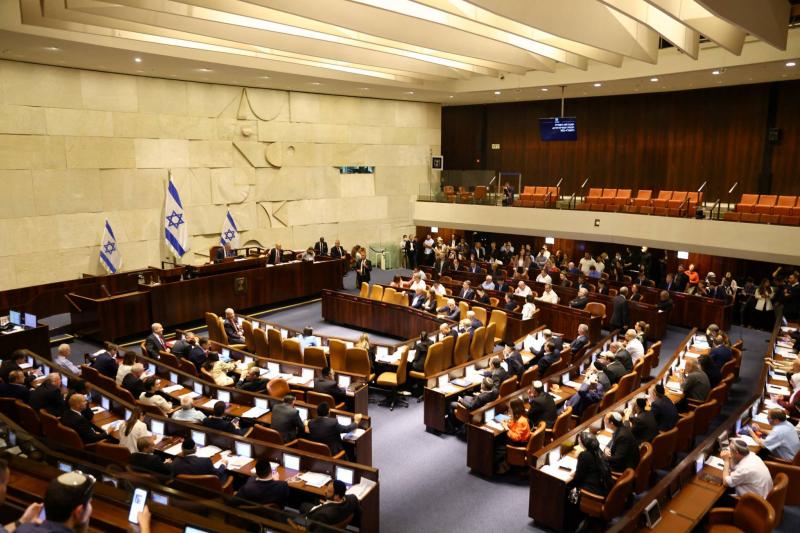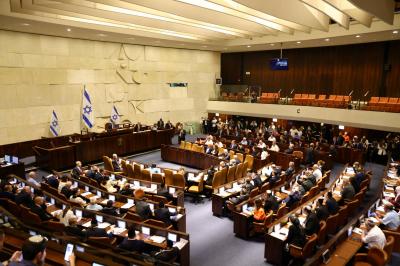Today, Wednesday, Israeli lawmakers are selecting two members of the committee that appoints judges, which will give a clear signal regarding Prime Minister Benjamin Netanyahu's coalition government's willingness to seek a compromise on plans to limit the powers of the Supreme Court. The issue of the nine-member committee, which appoints judges including Supreme Court justices, has been the most contentious in the struggle over the religious nationalist government's judicial reform plans, which have sparked nationwide protests. Netanyahu has suspended the reform plan, which would grant the ruling coalition almost complete control over judicial appointments. He has held talks to reach a compromise with the opposition, which is seeking widely agreed-upon legal reforms instead. However, these talks are at risk of failing if the Knesset excludes the opposition when choosing committee members today.
Israeli lawmakers were scheduled to select two members of the judicial appointment committee today, and traditionally, it was expected that one would come from the governing parties and the other from the opposition. However, the ruling coalition of nationalist and religious parties led by Netanyahu announced that it would vote to reject all candidates. A new vote must take place within 30 days if the lawmakers do not select the two members.
Opposition leaders accused Netanyahu of going back on a commitment to guarantee the selection of an opposition member, putting the compromise talks in direct jeopardy. The committee now consists of members of the Knesset, ministers, judges, and lawyers. Previously, it was normal for the two members selected by the Knesset to represent both the government and the opposition, but hardliners want both to be government representatives only.
The campaign to promote the judicial reforms, announced in January just a week after Netanyahu returned to power, has triggered one of the worst political crises in Israel in years, with critics both domestically and internationally describing it as a threat to the democratic nature of Israel. Supporters of the proposed reforms argue that the Supreme Court is elitist, left-leaning, and overly powerful, claiming elected officials should have greater authority in selecting the judiciary. Critics argue this would politicize the courts and threaten judicial independence.
Western allies, including Washington, have urged Netanyahu to seek broad consensus on judicial system reforms. Talks with the opposition have yet to yield significant results, increasing uncertainty about the future of the reform plans, which have harmed the economy and the shekel. The stakes are rising with the impending retirement of two Supreme Court justices in the coming months.




